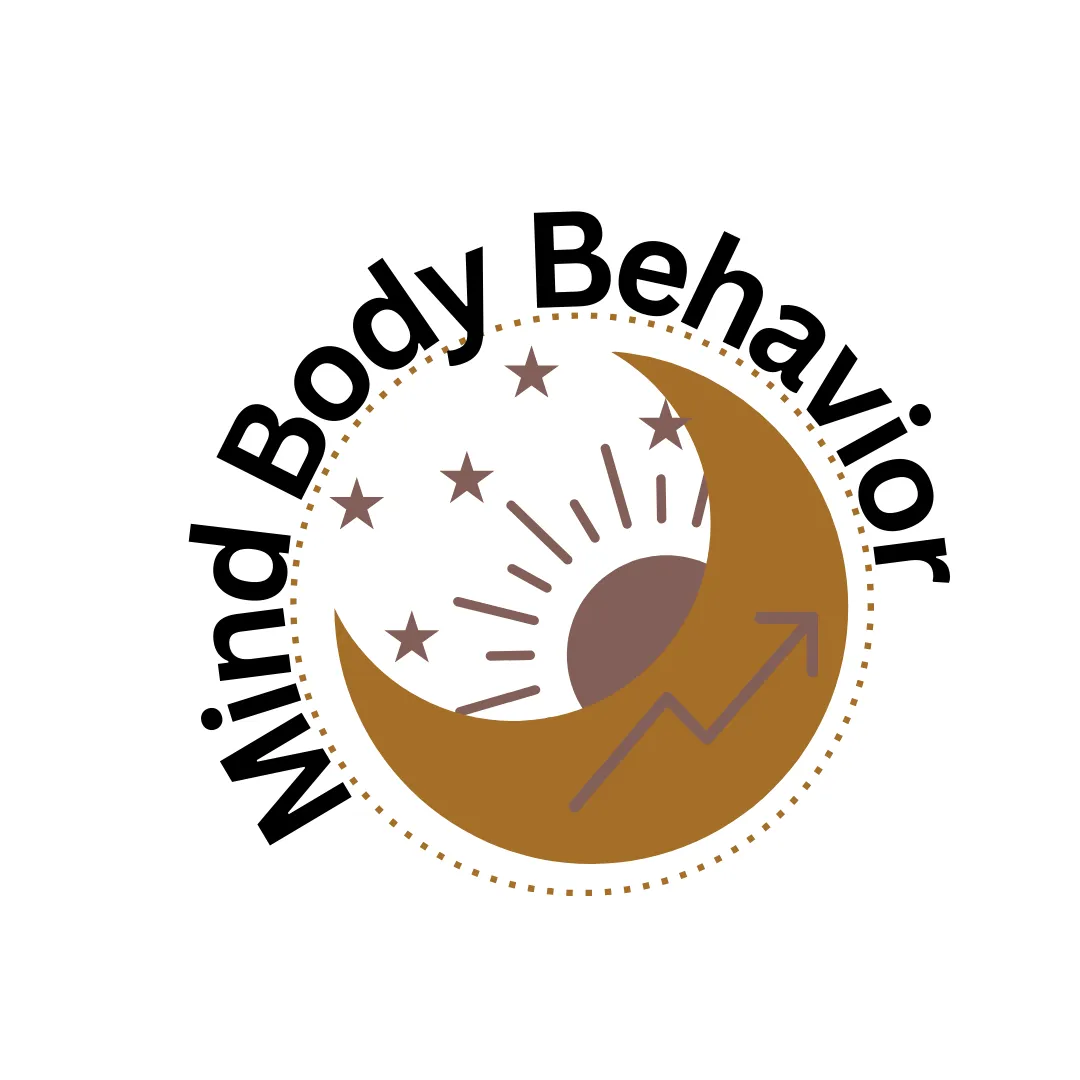
Become a Certified Behavior Health and Wellness Coach!
It's not too late to start your career outside of autism
The first and only NBHWC-approved certification specifically designed for BCBAs and RBTs—
where cutting-edge health and wellness coaching meets behavior analysis.
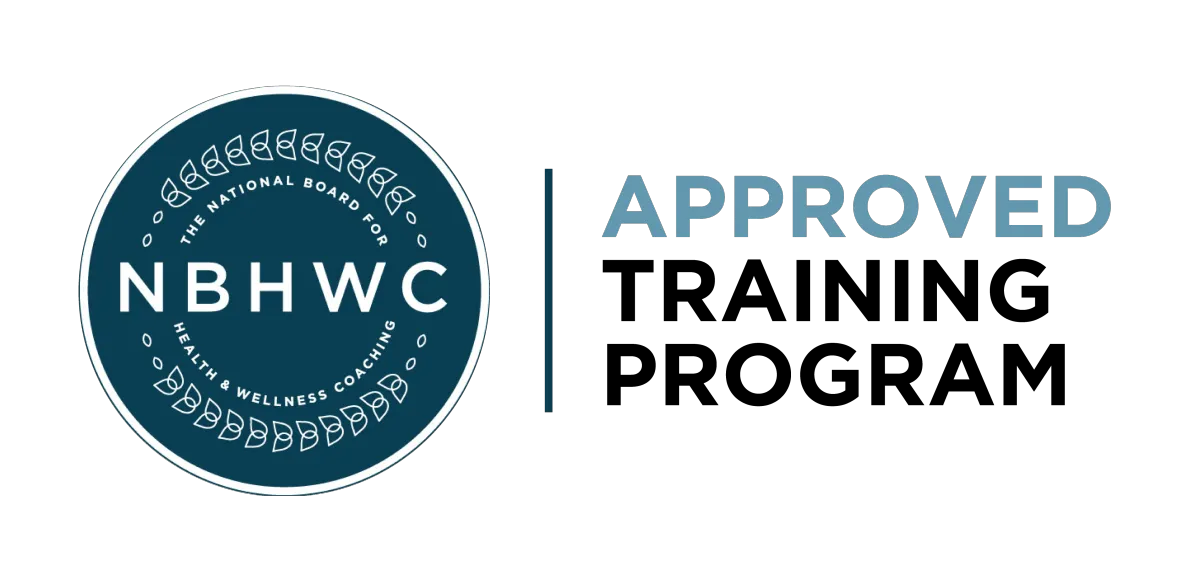
Mind Body Behavior's Behavior Health and Wellness Coaching Certificate is an Approved Health and Wellness Coach Training & Education Program by the National Board for Health and Wellness Coaching (NBHWC). Graduates of this program are eligible to apply for the HWC Certifying Examination to become National Board Certified Health & Wellness Coach (NBC-HWC).

The search over. Your roadmap for outside application of ABA has arrived.
You’re passionate about helping clients make long-term, sustainable, and evidence-based changes you just need some insight and where to get started.
You have a love for all things health and wellness, and you want to expand your current skill set beyond autism or developmental disabilities so you can practice outside of the traditional setting with confidence and competence.
You’ve spent so much time and money studying to be a BCBA but you’re feeling “blah,” stuck, or unfulfilled in your current role.
You're ready to combine both passions and feel excited about your career again.
Introducing Mind Body Behavior's Behavior Health and Wellness Certification Program.
The first and only National Board Certified Program
designed specifically for BCBAs and RBTs.
You've been told you can use your skillset outside of ASD, but No one told you how. Until now…

Let's press fast forward
You're a BCBA or RBT who completed this certificate program. Now you're:
Supporting clients on their wellness journey so they feel their happiest, healthiest, and most confident self.
Spending more time with your family and friends. You're picking up old hobbies that you never had time for before because your schedule was too chaotic or you were too exhausted.
Feeling fulfilled as an industry leader and trailblazer.
Your career shift starts now.
Earn all 32 BCBA continuing education credits.
Check out the full course schedule here.
Master powerful skills that open doors everywhere.
A six month program that fits your busy schedule.
Spring 2026 cohort is now open!
Classes begin March 12th or March 14th and run through the end of August.
The program consists of five separate "mini classes." Each class will have weekly, two hour synchronous meetings so you can ask questions, collaborate with your peers, and dive deep into the content.
Each class will also have weekly on-demand modules (ranging from 2-3 hours) so you can watch or listen on your time, at your pace.
When classes begin, you'll be able to access weekly readings and coaching resources so you can start to build your coaching toolbox and be ready to hit the ground running once the program is completed.
As part of tuition, you'll also gain access to NBHWC exam prep resources so you can feel confident when you sit for the exam.

It's ABA a different way.
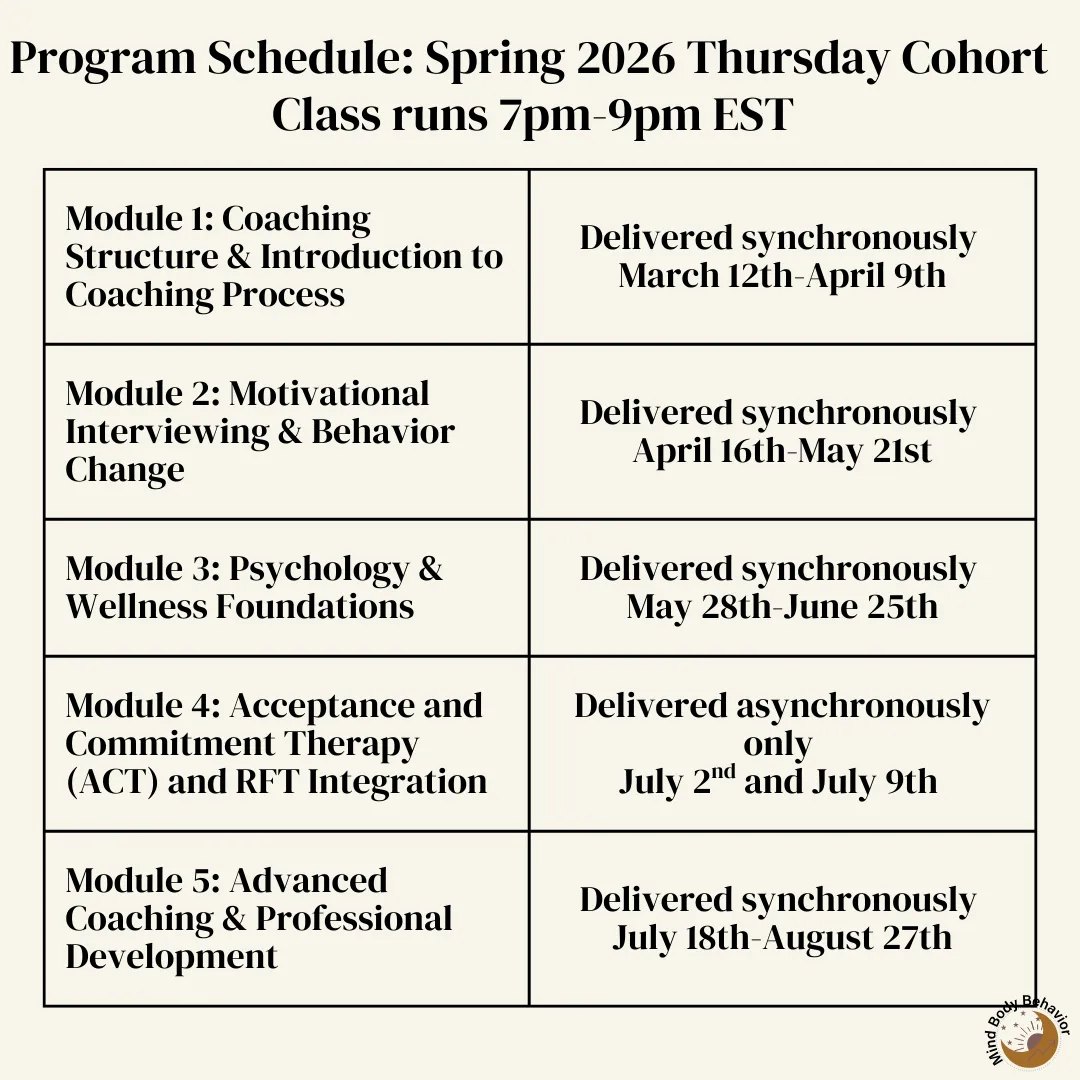
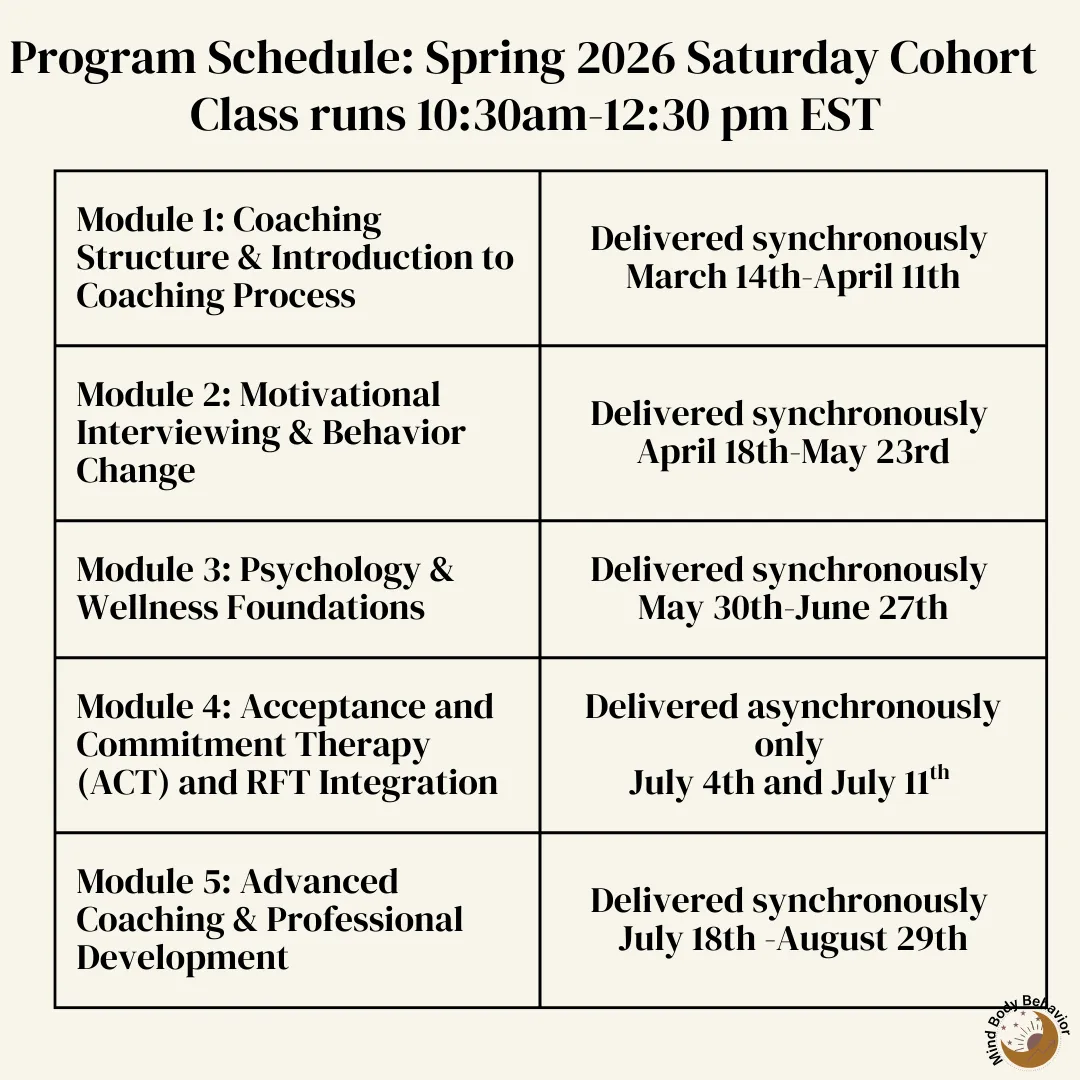
Curriculum + CEU Overview
The Behavior Analysis-Based Health & Wellness Coaching Certificate includes the following core courses and meet all NBCHWC Guidelines
Module 1: Coaching Structure & Introduction to Coaching Process
Duration: 5 weeks | CEUs: 7 (6 learning, 1 ethics)
This foundational module establishes the core competencies and ethical framework for health and wellness coaching while distinguishing coaching approaches from traditional BCBA interventions. Students will learn to create professional coaching relationships that honor both the collaborative nature of wellness coaching and the evidence-based principles of behavior analysis.
From the NBHWC perspective, this module focuses on establishing rapport, creating safe coaching environments, and understanding the collaborative nature of coaching relationships. Students develop essential skills in active listening, powerful questioning, and goal exploration while learning to maintain appropriate coaching boundaries. The module emphasizes the coaching mindset and presence required to facilitate client self-discovery and empowerment. Ethics coverage includes the NBHWC Code of Ethics, scope of practice guidelines, and professional standards that govern wellness coaching practice.
From the BCBA perspective, students learn to differentiate between coaching conversations and behavioral programming, understanding when each approach is most appropriate. The module clearly defines scope boundaries between coaching support and clinical intervention, helping BCBAs understand how coaching can complement but not replace behavioral services. Students explore how coaching assessments differ from functional behavioral assessments, while learning to recognize natural reinforcement processes in coaching relationships versus programmed reinforcement schedules used in ABA interventions.
Key outcomes include developing a professional coaching identity, establishing effective coaching relationships, and beginning to integrate behavioral science principles within appropriate coaching scope while maintaining clear professional boundaries.
Module 2: Motivational Interviewing & Behavior Change
Duration: 6 weeks | CEUs: 7 (6 learning, 1 supervision)
This module provides an in-depth exploration of Motivational Interviewing techniques and principles, integrating behavior change theory with coaching practice through both wellness coaching and behavioral science perspectives. Students learn to facilitate meaningful conversations that support sustainable behavior change while honoring client autonomy and self-determination.
From the NBHWC perspective, the module emphasizes facilitating client self-discovery, supporting autonomous goal development, and creating accountability structures that empower rather than control. Students master the MI spirit, processes, and skills within coaching conversations, learning to support intrinsic motivation and self-directed behavior change. The focus remains on respecting client choice, supporting self-efficacy development, and creating conditions where clients can explore their own motivations for change without external pressure or judgment.
From the BCBA perspective, students examine motivation through an ABA lens, understanding how antecedents, consequences, and establishing operations influence behavior change readiness. The module explores how MI techniques can help uncover behavioral functions and how natural versus artificial reinforcement systems support sustainable change. Students learn to apply behavioral principles in tracking and supporting client progress while maintaining the collaborative spirit essential to effective coaching relationships.
The integration of these perspectives helps students develop sophisticated skills in facilitating behavior change conversations that honor both coaching principles and behavioral science, preparing them to support clients in making lasting improvements to their health and wellness.
Module 3: Psychology & Wellness Foundations
Duration: 5 weeks | CEUs: 4 (3 learning, 1 supervision)
This module explores psychological principles, positive psychology, stress management, and chronic illness considerations in coaching practice, integrating mental health awareness with behavioral wellness approaches. Students develop a comprehensive understanding of how psychological factors influence wellness outcomes and learn to support clients holistically while maintaining appropriate professional boundaries. The module covers specialized topics including chronic illness management, physical activity and exercise coaching, sleep optimization, and comprehensive wellness interventions.
From the NBHWC perspective, the module covers integration of physical, mental, emotional, and spiritual wellness domains in coaching practice. Students learn strengths-based approaches, resilience building techniques, and meaning-making processes that support overall client wellbeing. Special attention is given to coaching considerations for clients with ongoing health challenges including chronic conditions such as diabetes, arthritis, and autoimmune disorders, learning how to provide appropriate support while recognizing when referrals to other professionals are necessary. The module includes evidence-based approaches to physical activity coaching, understanding exercise motivation and barriers, and supporting clients in developing sustainable movement practices. Sleep coaching principles are covered, including sleep hygiene, circadian rhythm optimization, and addressing sleep-related wellness challenges. Evidence-based stress reduction techniques and lifestyle modification strategies are explored through a coaching lens that empowers client choice and self-direction.
From the BCBA perspective, students examine behavioral health through the understanding of behavior-environment interactions in wellness contexts. The module explores how chronic illness and physical limitations function as establishing operations that affect behavioral repertoires and decision-making capacity. Students learn about behavioral momentum and environmental modifications that support sustainable wellness routines, applying antecedent strategies that make healthy behaviors more likely to occur naturally within the client's environment. Exercise and physical activity are examined through behavioral principles including habit formation, reinforcement schedules for activity maintenance, and addressing behavioral barriers to movement. Sleep behaviors are analyzed through a behavioral lens, understanding the environmental and behavioral factors that influence sleep quality and duration.
This integrated approach helps students support holistic client wellness by combining psychological wellness principles with behavioral science while maintaining appropriate referral practices and professional boundaries, preparing them to work effectively with diverse health conditions and wellness challenges.
Module 4: Acceptance and Commitment Therapy (ACT) and Relational Frame Theory (RFT) Integration
Duration: 3 weeks | CEUs: 6 (5 learning, 1 supervision) | Format: On-Demand
This advanced module integrates ACT principles and techniques into coaching practice, bridging third-wave behavioral therapies with wellness coaching through values-based action and psychological flexibility. Students learn sophisticated approaches to helping clients align their behaviors with their deepest values while developing psychological flexibility to navigate life's challenges.
From the NBHWC perspective, the module emphasizes values exploration processes that help clients identify and connect with their personal values and life purpose. Students learn to ensure coaching goals align with client values and support authentic goal-setting processes. Mindfulness integration and present-moment awareness practices are explored as tools for supporting client self-awareness and acceptance. The module covers values-driven action planning and commitment processes that help clients maintain motivation and persistence in pursuing their wellness goals.
From the BCBA perspective, students explore Relational Frame Theory and how language and cognition affect behavior patterns. The module covers functional contextualism, examining behavior in context and understanding the function of thoughts and feelings in behavioral repertoires. Students learn acceptance strategies that reduce experiential avoidance and increase psychological flexibility. The module explores how values function as powerful reinforcers that can guide and maintain behavioral repertoires over time, creating sustainable motivation for wellness behaviors.
This integration prepares students to facilitate sophisticated coaching conversations that support values-based goal setting and help clients develop psychological flexibility for sustainable behavior change that aligns with their authentic selves.
Module 5: Advanced Coaching & Professional Development
Duration: 6 weeks | CEUs: 8 (5 learning, 2 ethics, 1 supervision)
This capstone module develops advanced coaching skills, addresses complex ethical considerations, covers legal requirements, and focuses on professional development topics that prepare students for independent practice. Students learn to work effectively with specialized populations and integrate evidence-based interventions while navigating the complexities of professional coaching practice. The module includes advanced topics in nutrition coaching, hydration and wellness, substance abuse considerations, and specialized population coaching approaches.
From the NBHWC perspective, the module covers advanced skills for managing complex coaching conversations, working with client resistance, and handling challenging client situations with professionalism and competence. Students develop cultural competency skills and learn about health disparities and diverse client needs, preparing them to work effectively across different populations and contexts. The module includes evidence-based nutrition intervention coaching, understanding nutritional behavior change, and supporting clients in developing sustainable eating patterns. Hydration coaching principles are covered, including behavioral approaches to adequate fluid intake and addressing hydration-related wellness goals. Students learn appropriate coaching boundaries when working with clients who have substance abuse histories, understanding when and how to make referrals while providing supportive coaching within scope. Advanced ethical dilemmas, boundary management, and continuing education requirements are thoroughly explored. The module emphasizes evidence-based practice integration, helping students learn to incorporate research and best practices into their coaching interventions while maintaining the collaborative coaching relationship.
From the BCBA perspective, students learn to view coaching as a consultation model within behavioral frameworks, understanding how coaching can complement traditional ABA services and when referrals are most appropriate. Nutrition and eating behaviors are examined through behavioral principles, including understanding food-related behavioral functions, environmental influences on eating patterns, and behavioral strategies for sustainable dietary change. Hydration behaviors are analyzed as part of broader health behavior repertoires, applying behavioral momentum and environmental design principles. Students learn to recognize behavioral indicators of substance use issues and understand how substance use affects behavioral repertoires and coaching effectiveness. Systems thinking approaches help students understand environmental and social determinants that affect behavior change success. Cultural responsiveness is explored through a behavioral lens, examining how behavioral interventions must be adapted across diverse populations and contexts. Professional integration topics help students understand how coaching enhances rather than replaces traditional ABA services.
This comprehensive capstone prepares students to demonstrate advanced coaching competencies, navigate complex ethical situations, work effectively with diverse populations, and integrate both coaching and behavioral science perspectives in their professional practice, creating practitioners who can work ethically and effectively in both domains while addressing the full spectrum of wellness topics.
You already have the foundational knowledge, now it’s time to take it to the next level.
Check out the content outline for class one.
View the full schedules here👇🏻

With this skillset you can work in:
Corporate Wellness Programs
Private Coaching Practices
Healthcare Settings
Community Health Programs
Educational Institutions
Fitness and Wellness Centers
Telehealth and Virtual Coaching
By the end of this program, you will:
Learn how to apply behavior analysis principles specifically tailored for health and wellness coaching, enhancing your ability to create effective behavior change interventions.
Develop advanced skills in motivational interviewing, a key technique for addressing client ambivalence and driving engagement in behavior change.
Understand how to integrate the Stages of Change model into your coaching practice to effectively support clients at different phases of behavior change.
Gain expertise in designing and implementing wellness programs based on behavioral assessments and evidence-based practices.
Acquire knowledge on the ethical and legal considerations relevant to ABA practitioners in health and wellness coaching, ensuring compliance and professionalism.
Be prepared for the NBHWC certification exam with targeted coursework that builds on your ABA expertise and positions you as a qualified health and wellness coach.
Be able to apply behavior analysis techniques to improve client outcomes, using data-driven methods to track progress and adjust interventions for optimal results.
Work as an expert in behavior analysis in health related behavior change.
How do I get started?
To register for the program click the button below to save your spot. Registration is limited to 30 students per cohort and spots fill quickly.
New for 2026 - Program tuition options include:
One time payment of $6,000
4-Part Payment of $1,625 (payment due every other month)
$1,000 deposit + 10 Payments of $598.90
Individuals who complete this program will meet the requirements to sit for the National Board for Health and Wellness Coaching exam.
Tuition includes 32 BCBA CEUs including the required supervision and ethics CEUS for BCBAs.
Please email [email protected] with any questions.
Cancellation Policy: We understand life happens. Before registering for the program please read the cancellation policy. Deposits: Any program deposits made will not be refunded. Deposits may be used for a future program within one year. Payment plans: If you can no longer make the program, past payments will be refunded at 50% of total amount paid to date up until 30 days of your program start date. Requests for refunds after 30 days will not be granted. Deferring tuition: Request to defer tuition to a future cohort will be granted up to 30 days prior to your program start date. Requests to defer tuition to a future cohort will be granted up to 30 days prior to your program start date and must be applied within one year. Please note, no refunds or deferrals will be permitted after the 30 day window has closed.

Why start this program now?
So you can finally take that deep sigh of relief knowing you can blend your love of ABA and helping others and combine it with your passion for health and wellness creating the career you've also dreamed of but were never quite sure how to get started.

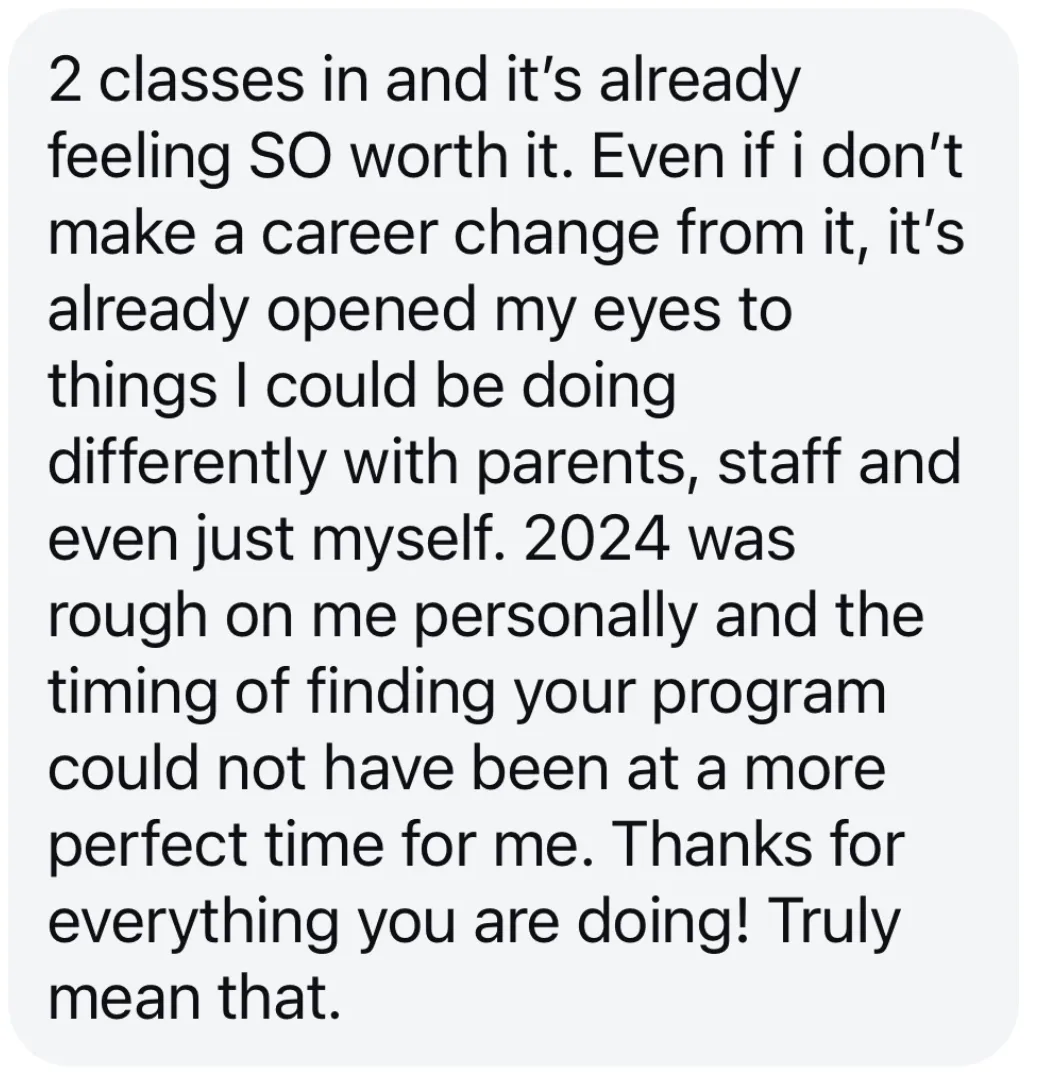

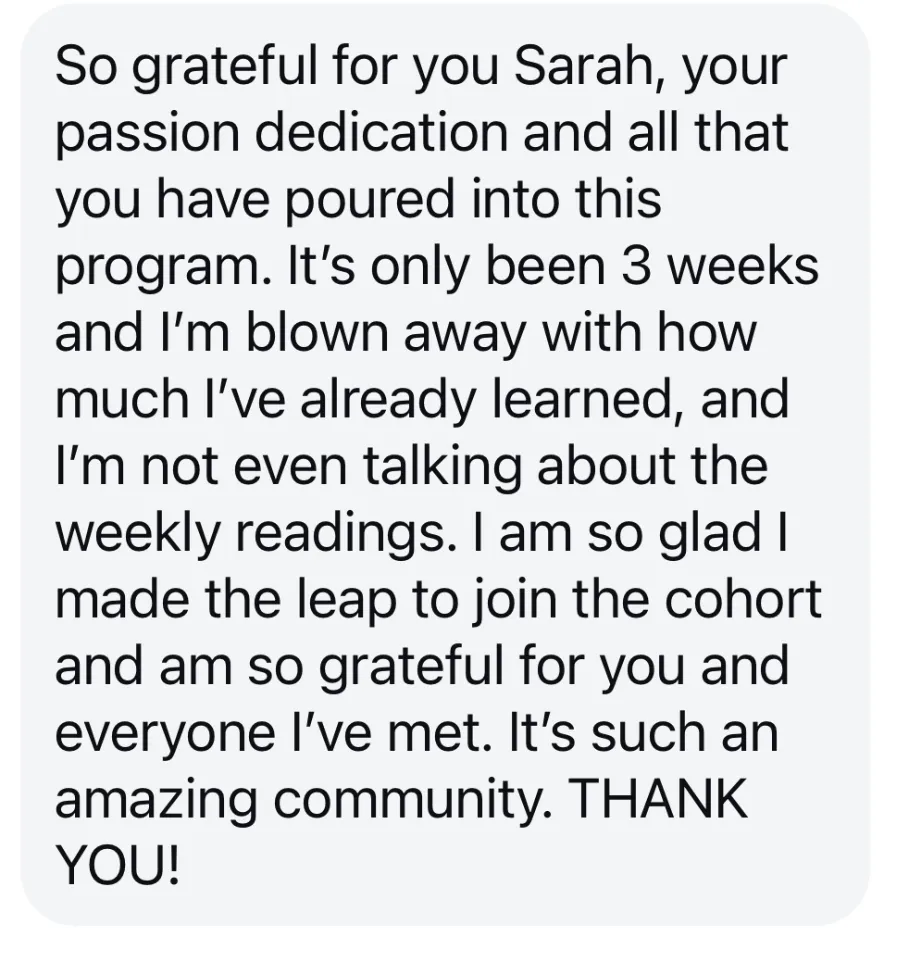
Meet your Lead Instructors!

Sarah Burby
M.A., BCBA, Certified Intuitive Eating
Counselor, NBHWC, Adjunct Professor
Temple University

Kendra Babbey
M.A., BCBA, NBHWC, Functional
Nutritionist, Certified Personal Trainer,
200 Hour Yoga Instructor
Meet your Co-Instructors

Christine Hoffner Barthold, Ph.D., BCBA-D, LBA, NBC-HWC
Classes:
Motivational Interviewing and Aging
Physical Activity and Sedentary Lifestyle Parts 1 and 2
Building Client Centered Relationships
Understanding Intrinsic Motivation and Client Choice

Lou Lasprugato, CA and VA licensed MFT, Peer-Reviewed ACT Trainer, ACBS Training Committee Chair
Classes:
Week 1 Intensive Weekend - Understanding and Using the ACT Choice Point in Coaching

Matthieu Villatte, Ph.D., Peer-Reviewed ACT Trainer
Classes:
Understanding Relational Frame Theory
Clinical Applications of RFT in Coaching

Allison Parker, M.A., BCBA Ph.D. Candidate
Classes:
Understanding Power Dynamics, Identifying and Recognizing Biases, and Practicing and Applying Cultural Humility Parts 1 and 2.

Callie Plattner, Ph.D., LPA, BCBA-D
Classes:
Week 2 Intensive Weekend - A Deep Dive into Motivational Interviewing in the Coaching Space
Your Top Questions, Answered
Are there payment plans?
Yes, you can pay in full or choose from multiple payment plan options. All of the options are listed on the sign up page.
How much time should I dedicate to the program each week?
We will meet synchronously for 2 or 2.5 hours depending on your cohort day. Between classes you will have 1-3 hours of on-demand modules to watch each week that can be done at your pace, on your own time. There will also be supplemental reading provided that will take approximately one hour.
Please plan for two hours a week of live classes and approximately 3-4 hours a week outside of class time.
Will there be homework assignments or papers?
No, you will not have any additional assignments outside of the on-demand modules and recommended reading. No tests, quizzes, or papers will be due.
Will I be able to sit for the board exam when I finish the program?
This course meets the educational and practical skills assessment (PSA) requirements to sit for the National Board for Health and Wellness Coaching exam. Before you apply for the board exam, you will need to conduct 50 practice coaching sessions.
How did I find clients?
Most students offer free coaching to meet this requirement.
Will I be able to find a job as a health coach?
The demand for National Board Certified Health and Wellness Coaches is increasing each year. Many jobs for health coaches, health educators, health specialist, etc. are posted and offered both virtually and in-person.